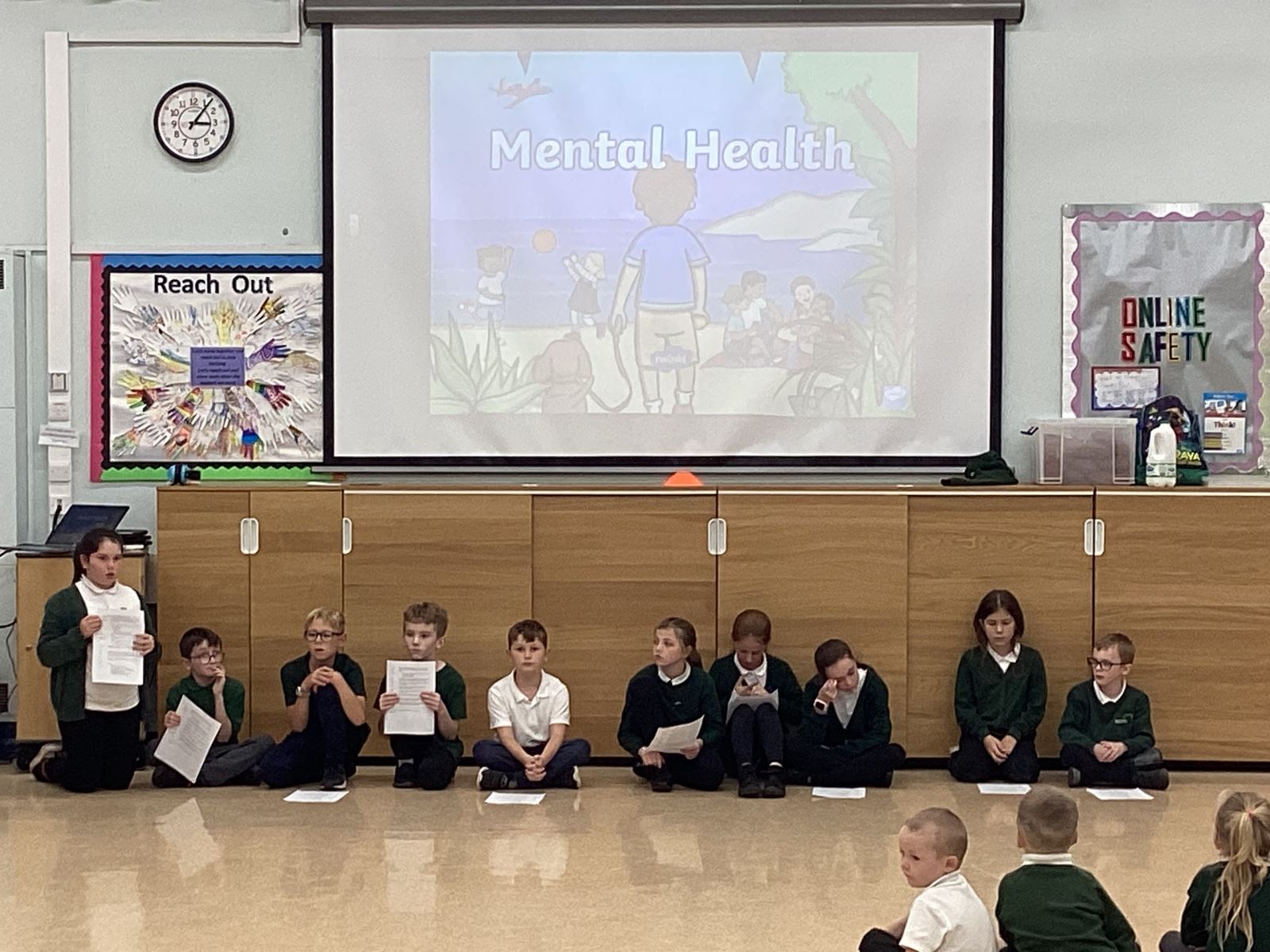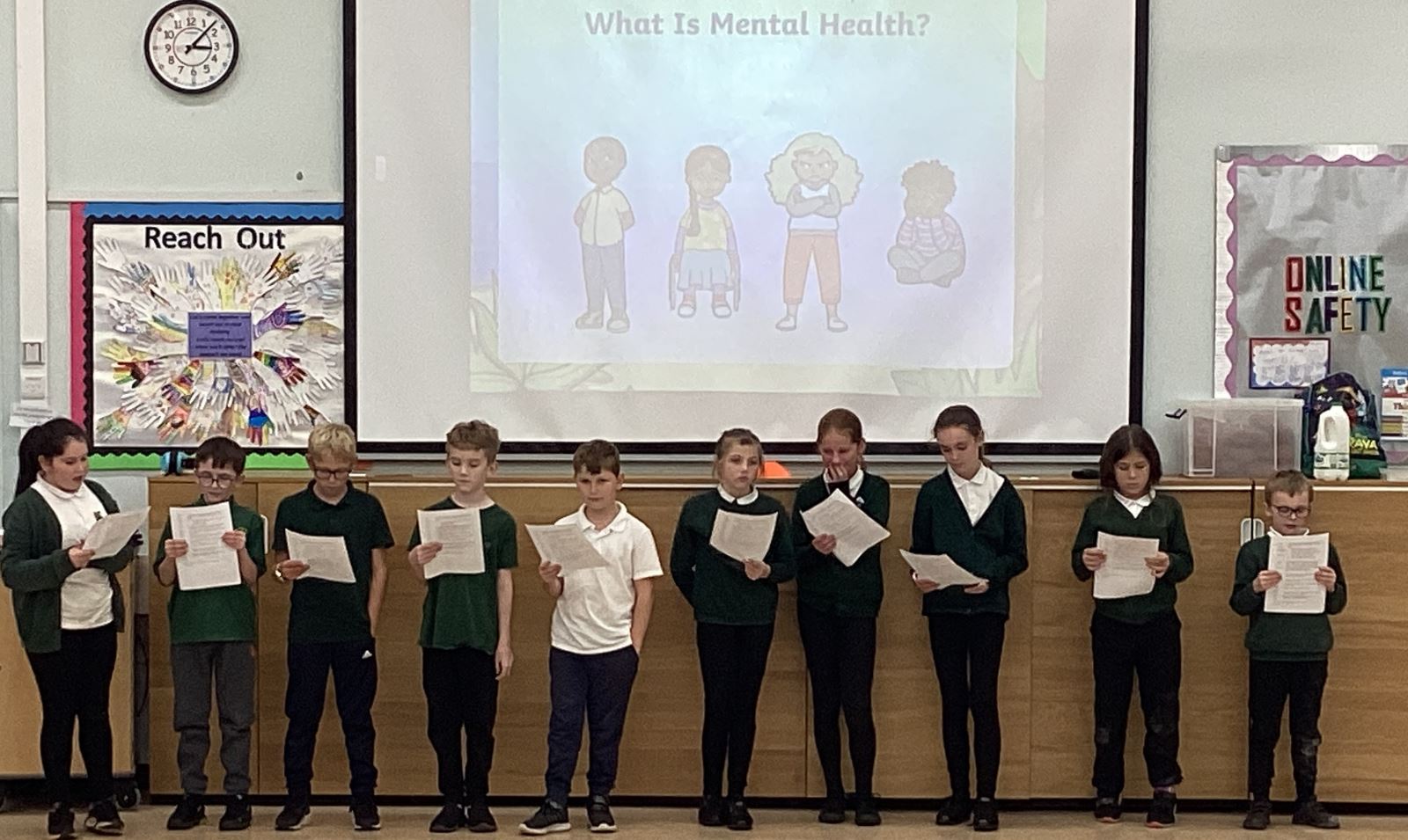Mental Health and Emotional Wellbeing
Senior Mental Health Lead: Stephanie Tew
mental health and emotional support for adults
At Laurel Avenue Community Primary School we aim to promote positive mental health for all our pupils. We pursue this aim using whole school approaches and specialised, targeted approaches aimed at vulnerable pupils.
School staff spend a vast amount of time with children and get to know them well, so can at times play a vital role in supporting parents and signposting on to the relevant professionals in order for children to receive the support they need.
Who has mental health?
We all have mental health – some people call this emotional health or wellbeing.
What is mental health?
The World Health Organisation defines mental health as a state of wellbeing in which every individual achieves their potential, copes with the normal stresses of life, works productively and fruitfully, and is able to make a contribution to their community. Mental health includes our emotional, psychological and social wellbeing. It affects how we think, feel and act.
Good mental health and wellbeing is just as important as good physical health. Like physical health, mental health can range across a spectrum from healthy to unwell; it can fluctuate on a daily basis and change over time.
Most children grow up mentally healthy, but surveys suggest that more children and young people have problems with their mental health today than 30 years ago. It is thought that this is probably because of changes in the way that we live now and how that affects the experience of growing up.
What helps?
Things that can help keep children and young people feel mentally well include:
-
being in good physical health, eating a balanced diet and getting regular exercise
-
having time and the freedom to play, indoors and outdoors
-
being part of a family that gets along well most of the time
-
going to a school that looks after the wellbeing of all its pupils
-
taking part in local activities for young people.
-
feeling loved, trusted, understood, valued and safe
-
being interested in life and having opportunities to enjoy themselves
-
being hopeful and optimistic
-
being able to learn and having opportunities to succeed
-
accepting who they are and recognising what they are good at
-
having a sense of belonging in their family, school and community
-
feeling they have some control over their own life
-
having the strength to cope when something is wrong (resilience) and the ability to solve problems.
What happens in school?
In school, we teach children about what it means to have good mental health and wellbeing throughout our curriculum and daily practice.
Our PSHE curriculum, Jigsaw, focuses specifically on developing children’s social and emotional skills which can prevent poor mental health from developing and help all children cope effectively with setbacks and remain healthy. It is about helping children to understand and manage their thoughts, feelings and behaviour and build skills that help them to thrive, such as working in a team, persistence, and self-awareness.
Each class takes part in regular ‘reset’ activities throughout the day which involve mindfulness colouring, breathing bubbles and guided meditations. It allows for a period of calm so that the children are emotionally ready to learn.
Lily Morris, positive futures advisor, works in school once a week to support children who require a little more support on their emotional regulation. Lily works closely with the school team to identify vulnerable pupils who would benefit from one to one or small group intervention.
We are also proud of our Nurture Group which runs alongside Class 3. Using Boxhall Profiles, classroom observations and conversations with parents, we identify children who would benefit from a more nurturing environment, similar to an Early Years classroom. Children are encouraged to play, share and work together in a family style unit.
To show our dedication in the area of mental health and wellbeing, we have signed up to The Durham Resilience Programme. ‘The Durham Resilience Programme (DRP) aims to raise awareness of the importance of developing and supporting resilience across school communities, and support participating schools in developing, implementing and reviewing a bespoke action plan to improve resilience-promoting practice within their setting.’
What if my child is experiencing difficulties with their mental health and well-being?
Mental health doesn’t mean being happy all the time or avoiding stresses altogether. One of the most important ways to help your child is to listen to them and take their feelings seriously.
In many cases, children and young people’s negative feelings and worries usually pass with the support of their parents and families. It is helpful for the school to know what they are going through at these times, so that staff can be aware of the need and support this.
Coping and adjusting to setbacks are critical life skills for children, just as they are for adults, but it is important that they develop positive, rather than negative, coping skills.
If you are ever worried about your child’s mental health and wellbeing then, just as you would about any concerns that you have about their learning, come and talk to us. Sometimes children will need additional support for a short period – this may be in the form of a daily check-in with a trusted adult, time to talk through what they are feeling and support in developing ways of moving forwards with this.
If your child is distressed for a long time, if their negative feelings are stopping them from getting on with their lives, if their distress is disrupting family life or if they are repeatedly behaving in ways you would not expect at their age, then please speak to your child's teacher and your family’s GP.
Looking after yourself
If things are getting you down as a parent, it’s important to recognise this. Talk to someone you trust and see what they think. It is easy to go on struggling with difficult situations because you feel that you should be able to cope.
Come and talk to us and let us know when things are tough. As much as you try to hide how you are feeling from your child, they will notice even the smallest changes.
Go to your GP if things are really getting on top of you. Asking for some support from your doctor or a referral to a counselling service is a sign of strength. You can’t help your child if you are not being supported yourself.
Useful files to download
mental health parent guide
rainbow pages - useful contacts to help with children and young people’s mental health
RAINBOW PAGES - USEFUL CONTACTS TO HELP WITH adult MENTAL HEALTH
parent helpline
Mental Health Ambassadors

Our fantastic team of Mental Health ambassadors meet once a month to complete activities and share ideas on how to improve mental health across the school.
The children have visited every classroom to share strategies to help children remain calm, which you can watch below.
For World Mental Health Awareness day, they helped plan activities for the whole school to take part in, including games and guided meditations.
They also led a whole school assembly to raise awareness of mental health and to share some top tips for promoting wellbeing:
-
exercise
-
eating a balanced diet
-
getting enough sleep
-
doing something you love
-
going outdoors
-
talking to a friend
-
talking to a trusted adult
-
doing something kind for each other

